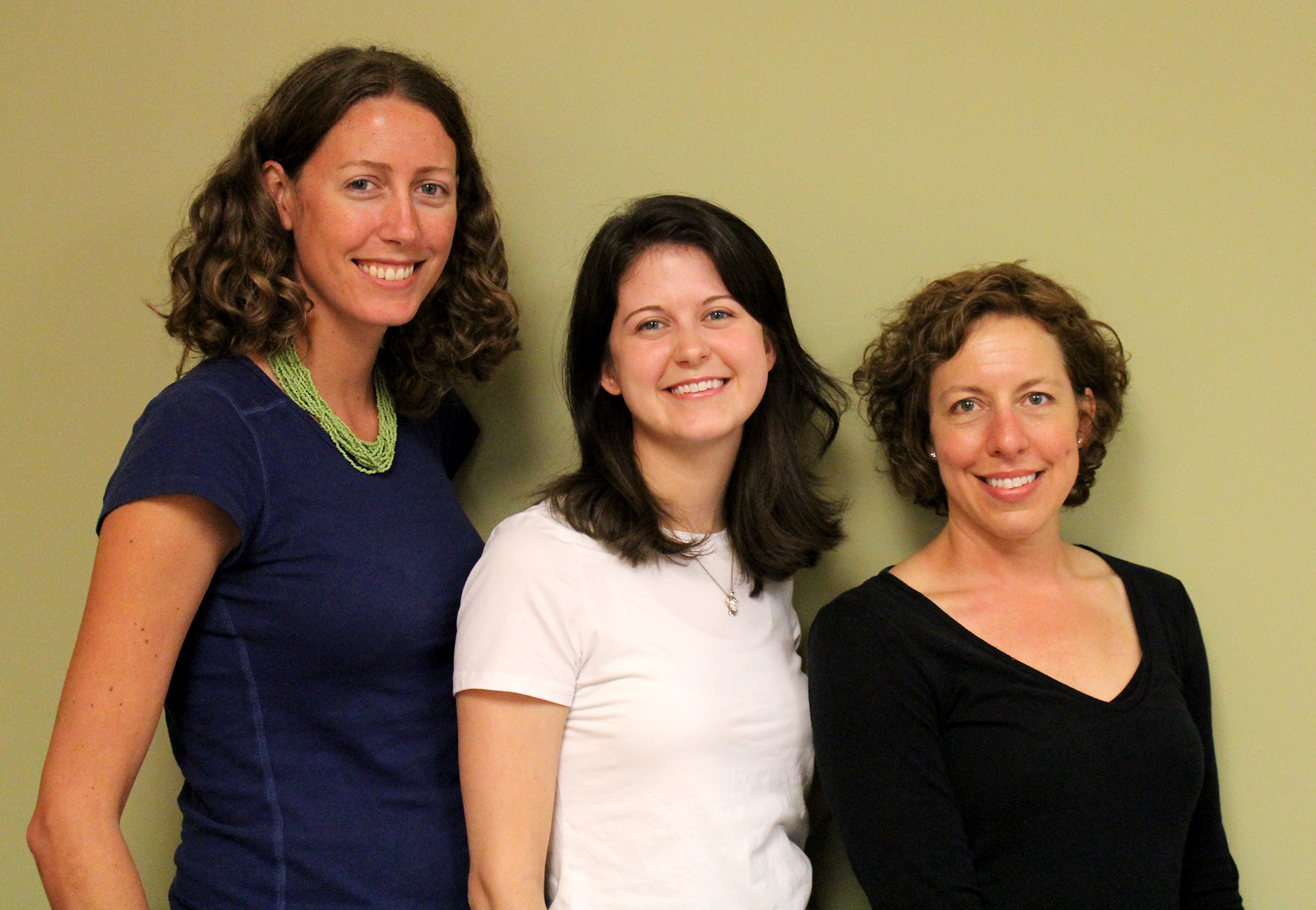Athens, Ga. – Dara Satterfield, Sarah Budischak and Sara Heisel, doctoral students in the University of Georgia Odum School of Ecology, recently took second place honors in the National Science Foundation Innovation in Graduate Education Challenge.
The challenge, which drew more than 500 entries, was launched in February to solicit ideas for improving graduate education and professional development for students in the sciences. In the UGA students’ case, they chose to focus on STEM fields, or those concentrated on science, teaching, engineering and math.
Satterfield, Budischak and Heisel, who study the ecology and evolution of infectious diseases in wildlife, entered the competition under the team name “Parasite Ladies.” They received one of two $2,000 second place prizes for their entry “Retaining Women in STEM Careers: Graduate Students as the Building Blocks of Change.”
Satterfield explained that she and her colleagues, who meet regularly to discuss parasite ecology, research ideas or recent papers in their field, have often discussed the issue of retaining women in the sciences.
“In the U.S., we’re now so much better at recruiting women into science, but we’re not so good at supporting them once they’re there,” she said. “As a result, many women scientists have shorter careers than their male counterparts and are especially less likely to advance into full professorships. We’ve talked about this in our Parasite Ladies group or with our advisers. So when the NSF released an essay contest about how to improve graduate education, we knew exactly what we wanted to write about.”
Their entry contains three practical proposals for fostering more equal and lifelong careers for women scientists.
First, they suggest establishing a website to help connect graduate students with mentors and role models with whom they can discuss career decisions, work-life balance and other challenges. The site also would serve as a forum for online panel discussions on topics such as navigating organizational politics and salary negotiations.
Next, they propose equality training to target the subtle biases—held by women and men both—that hinder the advancement of women. This training would take the form of online modules that could be incorporated into the ethics training course required for all NSF grantees, or the online trainings required by many research institutions.
Finally, they suggest establishing a national program of graduate “Equality Ambassadors,” students who would receive training to help them advocate for policy changes at their institutions and future workplaces.
Heisel, who worked in industry before returning to school to pursue her doctorate, said she observed even though much attention is focused on leveling the playing field, subtle bias persists and can influence women to decide staying in STEM fields is not worth the cost.
“My personal belief is that these are issues not easily identified on a day-to-day basis but cumulatively create an atmosphere that does not promote retention of women in STEM careers. We all feel that addressing these issues early on can begin to create change,” she said.
Sonia Altizer, associate dean in the Odum School of Ecology, said the need for these initiatives was critical.
“Data show that in some fields like the life sciences, women make up more than half of the students obtaining Ph.D.s, but fewer than 30 percent of tenure track faculty” are female, she said. “An even smaller ratio of senior faculty is women. This percentage hasn’t budged much in the past two decades.”
Satterfield said the loss of these highly trained scientists has serious consequences for technical innovation, economic growth and the status of the U.S. as a global leader in STEM disciplines.
“We believe our proposals would help the U.S. retain scientists, would give women more options for their careers and would help the U.S. maintain a foothold as an international leader in scientific advancement,” she said.
Altizer agreed. “Women can offer unique perspectives and styles to scientific disciplines and academic programs, and it is sad to think that we are losing so many of their contributions and voices between the granting of Ph.D.s and the hiring and promotion of our academic faculty,” she said. “Sarah, Dara and Sara offer realistic solutions that address this issue head on at a juncture when women make crucial decisions about where to go next with their careers and lives.”
Odum School Dean John Gittleman praised the team’s approach.
“The future of science is collaboration and effective teamwork,” he said. “This is even more important in areas that are growing and changing at lightning pace, such as emerging disease in ecological settings. Dara, Sara and Sarah show that a critical, personal aspect of this is how to work better on a day-to-day basis and that ‘leaning in’ for women, to use Sheryl Sandberg’s phrase, is very important to harness effective teamwork among women. It’s an honor that the Odum School’s ‘Parasite Ladies’ are taking a lead.”
“I am excited that our proposal will be shared with a broad audience and with the people in positions to make meaningful changes,” said Budischak. “I want more women to be interested, successful and happier undertaking scientific careers, so if any of our ideas are implemented, or simply inspire other programs, I will consider it a huge achievement.”
For more information on the Odum School of Ecology, see http://www.ecology.uga.edu/. To read their proposal, “Retaining Women in STEM Careers: Graduate Students as the Building Blocks of Change,” see http://www.nsf.gov/news/special_reports/gradchallenge/images/winners/entries/second-place-parasite-ladies.pdf.


